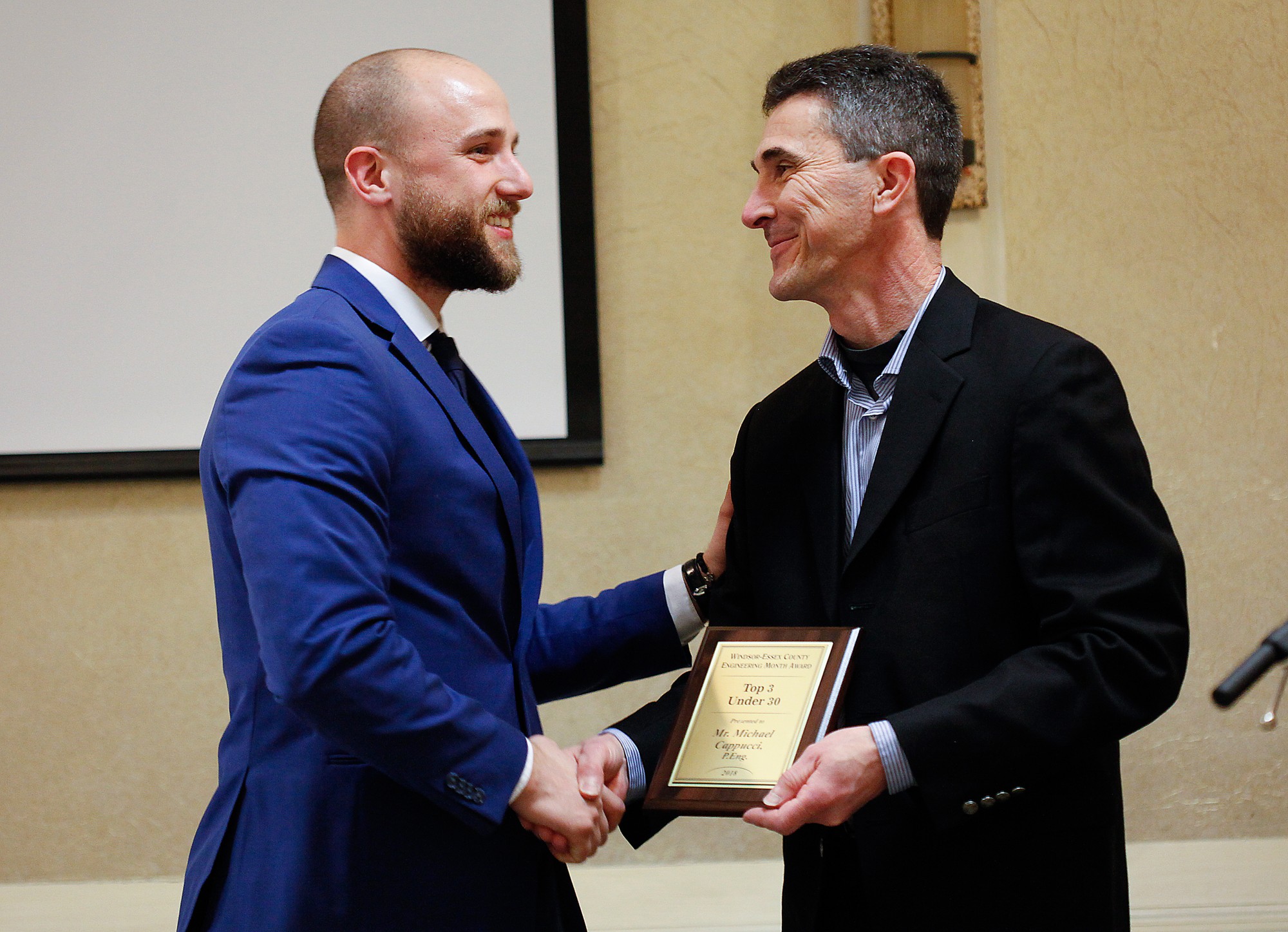
Several University of Windsor engineering students and alumni were honoured during a local celebration of the engineering profession.
Windsor’s Engineering Month Committee hosts an annual awards luncheon to “bring public awareness to the diversity and importance of the exciting fields of engineering and technology and invite prospective students to consider these professions,” said Tina Hawco, chair of the Engineering Month Committee.
The committee is comprised of engineers and technologists from local municipalities, consulting engineering firms, the University of Windsor, St. Clair College, professional associations and industry.
Priscilla Williams, a PhD candidate in the civil and environmental engineering department, Michael Cappucci, BASc ’11, and Aaron Blata, BASc ’14, were named the Top Three Under 30 during a ceremony April 13, 2018 at the Fogolar Furlan Club for demonstrating higher than average abilities to undertake engineering projects, outstanding work ethic and leadership early in their careers.
— Published on Jan 7th, 2021
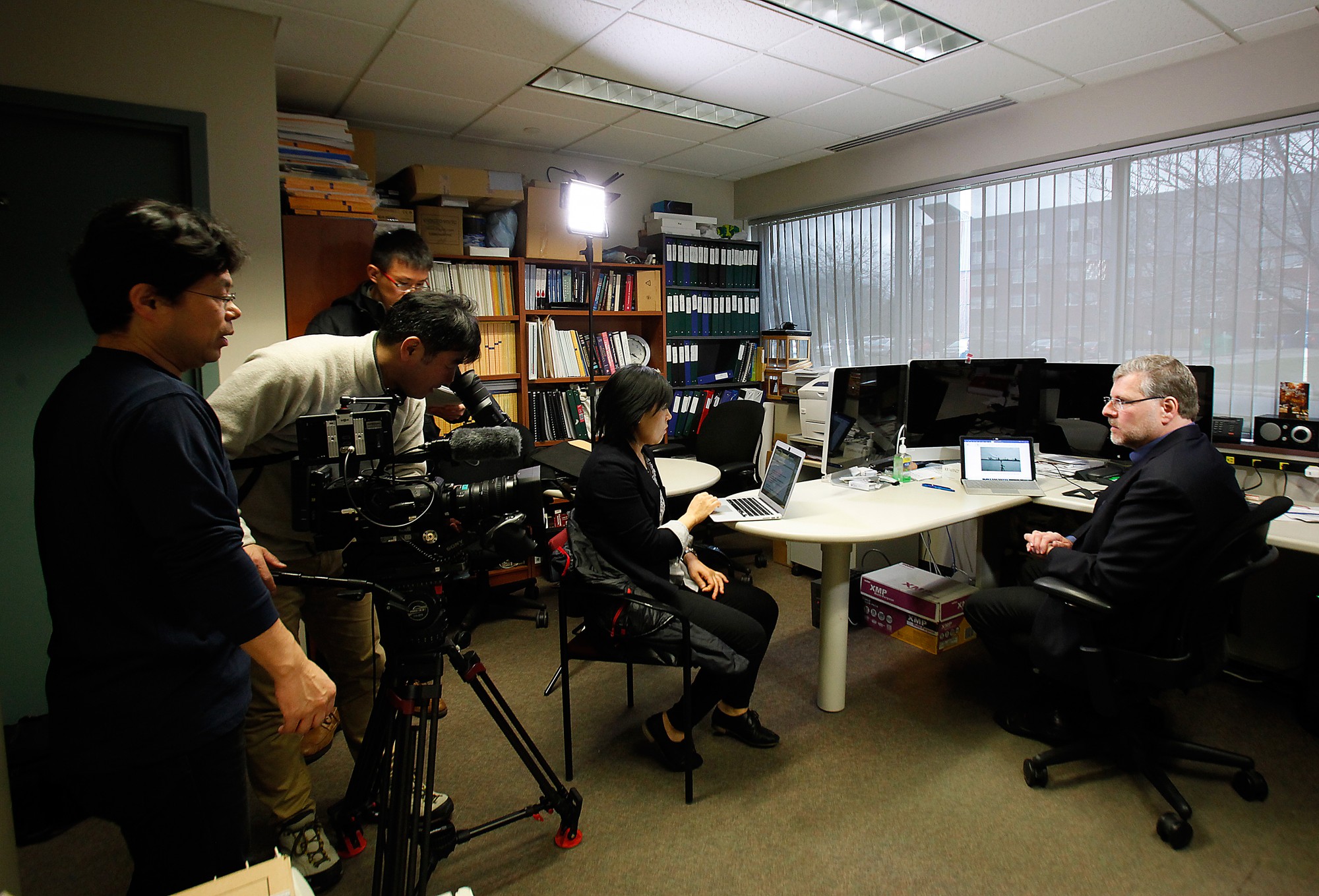
A University of Windsor engineering professor will be featured in a Japanese science show for his investigation into the source of the infamous Windsor Hum.
A camera crew from Japan’s national public broadcaster NHK made a special trip to campus April 16 to interview and film Colin Novak, an associate professor in the mechanical, automotive and materials engineering department.
Production co-ordinator Takayo Nagasawa said the segment will run as part of an episode focused on the sound of the cosmos and people who make data from sound.
“We found out about the Windsor Hum and we couldn’t tell the story without interviewing Dr. Novak,” she said during a break from filming in the university’s Centre for Automotive Research and Education.
— Published on Jan 7th, 2021
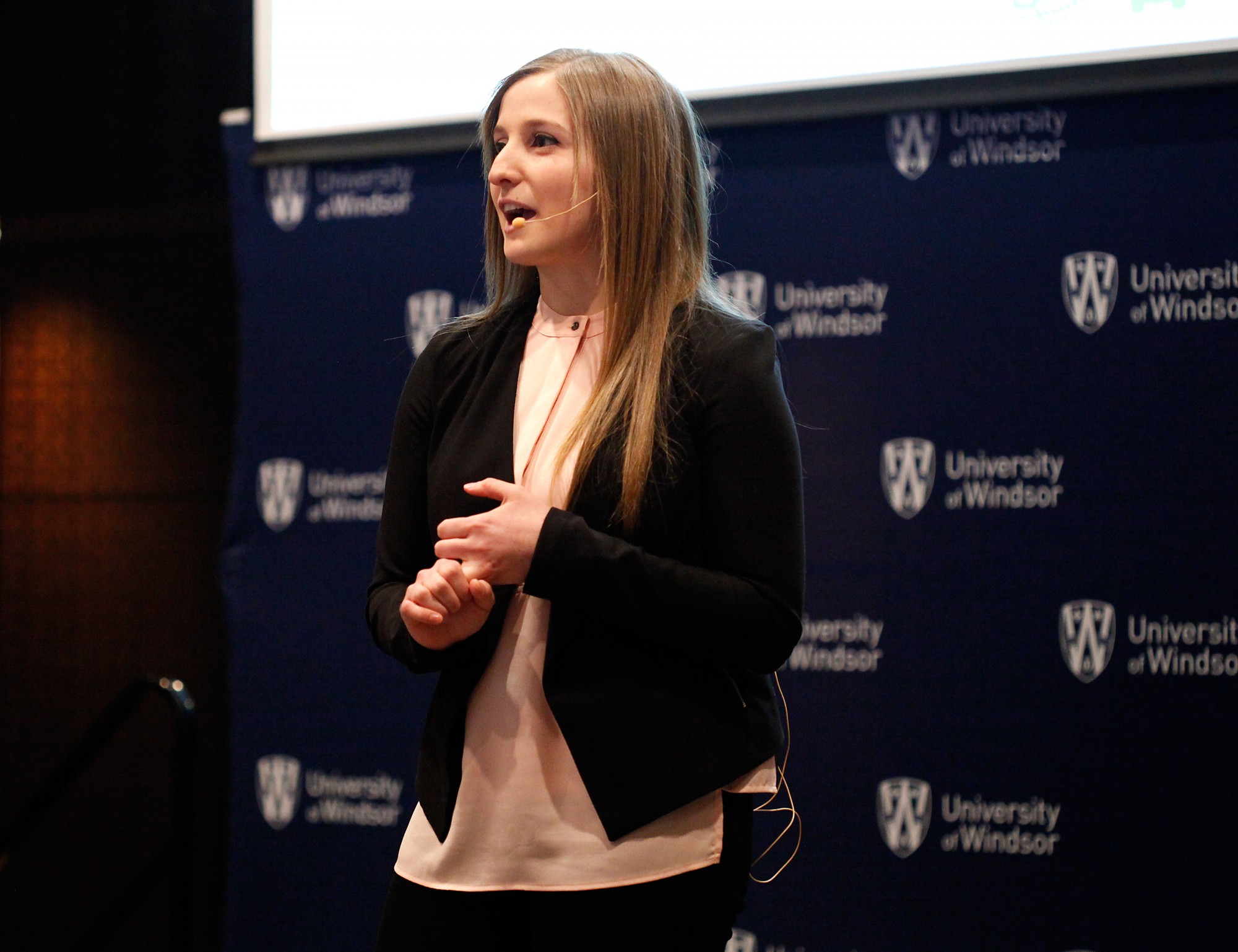
A UWindsor Engineering graduate student represented the University of Windsor at a provincial Three Minute Thesis competition.
Liza-Anastasia Di-Cecco, a master's student in Materials Engineering, presented her 3D printing research at the Ontario 3MT® competition final on April 19, 2018 at York University.
Di-Cecco had three minutes and a single presentation slide to deliver her presentation titled "Move over plastic, we're 3D printing titanium."
"In my research, I’m studying the material properties of pure titanium made through a specific 3D printing process using plasma fabrication," Di-Cecco said. "I’m concentrating on looking at their strength, hardness, and durability, while also looking at what’s happening at the microscopic level to characterise these parts."
Di-Cecco said 3D printing is expanding our ability to make parts and more complex items such as custom prosthetics and orthotics and lighter and more fuel efficient cars.
"Even advanced rocket fuel nozzles that might someday get us to Mars; The possibilities of this research are endless," she added.
Three UWindsor Engineering graduate students made it to the final six in the University of Windsor's Three Minute Thesis competition where Di-Cecco took home a second-place prize of $500.
— Published on Jan 7th, 2021
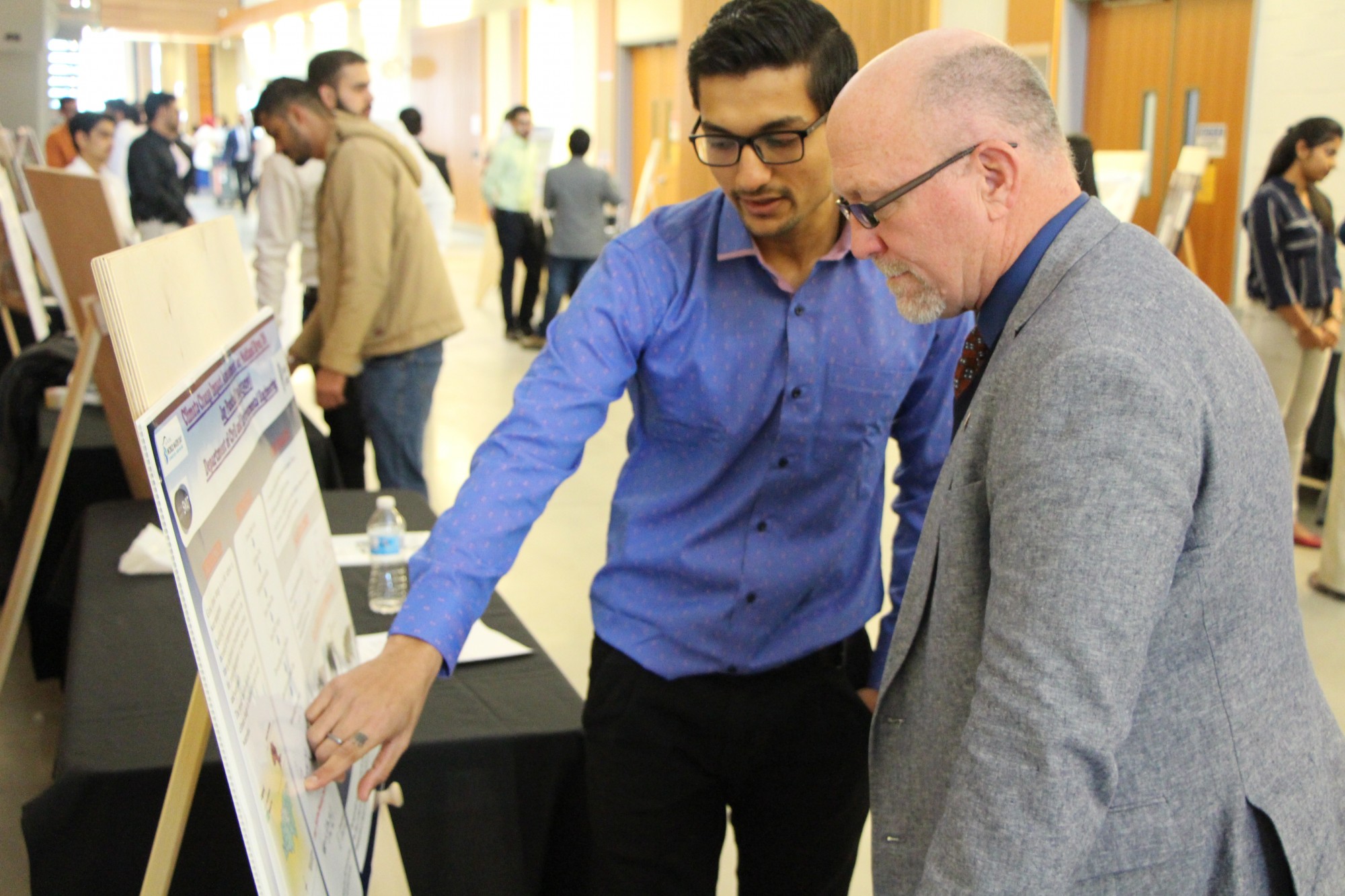
Swollen by rain and melting snow, the Thames River burst its banks in February, inundating southwestern Ontario with its worst floods in 40 years.
The effects of such a catastrophe can be mitigated, says Monika Saha, a master’s candidate in civil engineering, and one of more than 20 students who presented projects in the Centre for Engineering Innovation on Thursday, March 22, in celebration of World Water Day.
Saha is working to create models of the lower Thames River that can predict floods in Chatham-Kent.
“We’ll basically capture the flow. With our hydrologic and hydraulic models getting the input level, it will give you the output to predict which areas will be inundated,” she said. “You will be able to take precautions.”
— Published on Jan 7th, 2021
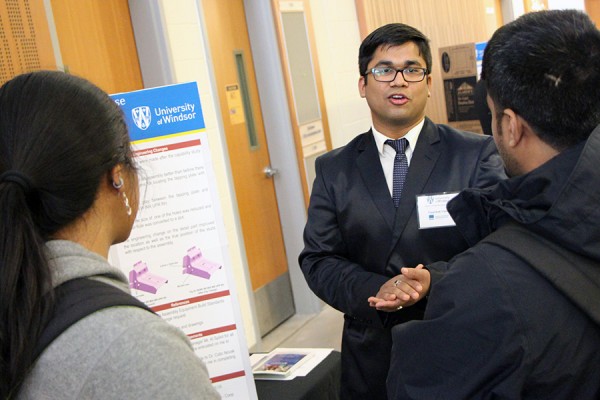
Students from the course-based Master of Mechanical Engineering - Automotive program bring valuable skills with them into the workplace, says Gordon Leslie.
Corporate engineering manager at automotive parts supplier the Narmco Group, he was in attendance Wednesday at the Centre for Engineering Innovation for poster presentations by students on their experiences with co-operative education placements.
The Narmco Group was one of those co-op employers, and Leslie said engineering grads make a good fit for the industry.
“We used to promote toolmakers but we now we’re looking at hiring people with an engineering background,” he said. “Engineering students are learning to tackle problems.”
He was impressed with contributions by Triyambak Tripathy, who completed a co-op work term but has continued in a part-time job with the firm while he completes his degree.
— Published on Mar 23rd, 2018
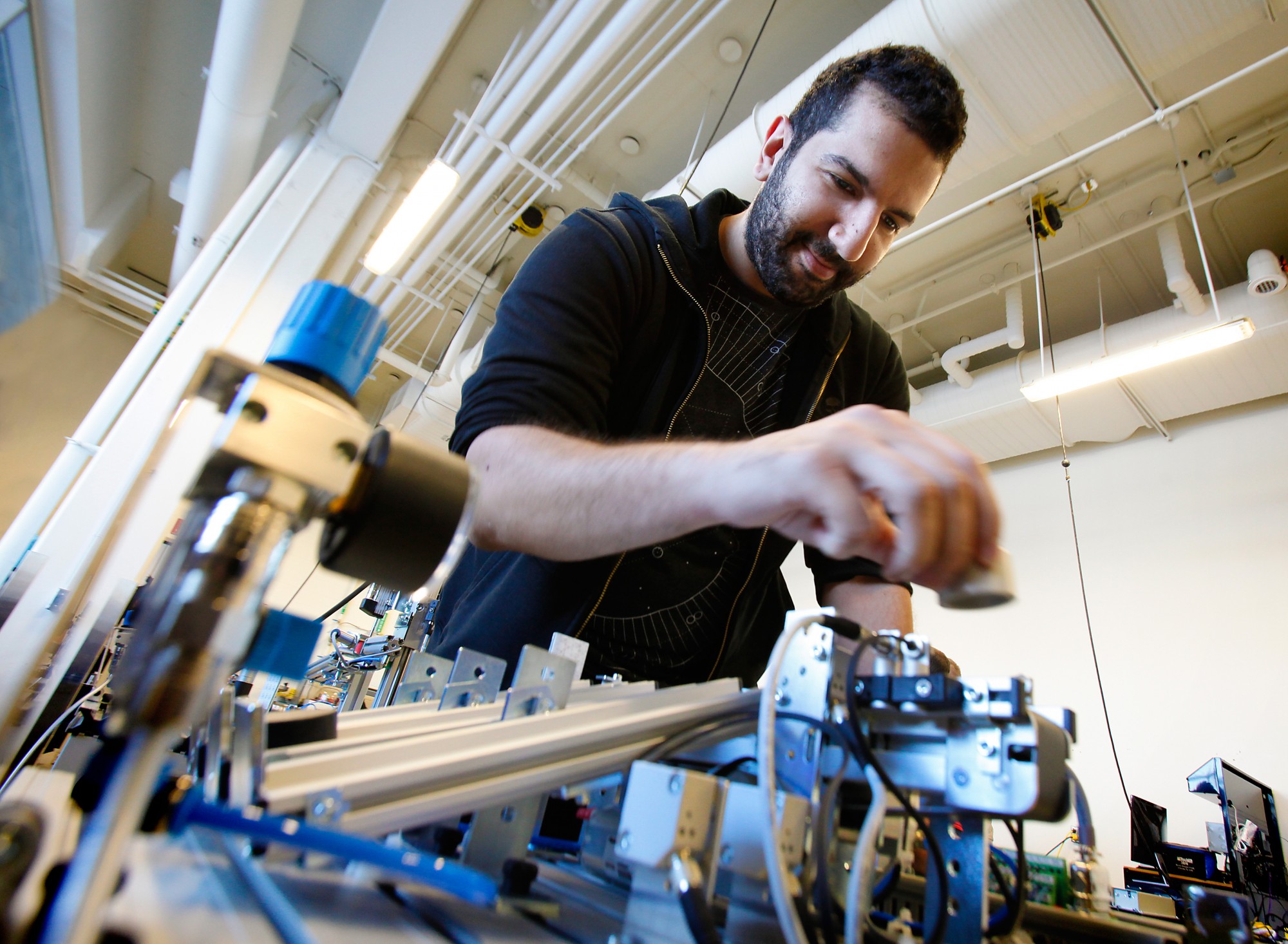
A new weekend technology program offered by the University of Windsor is helping local companies meet market demands.
The Bachelor of Engineering Technology (BEng Tech) degree, originally designed to create a pathway from college to university, is now available on weekends for working professionals to expand their expertise in mechatronics, industrial automation, robotics, manufacturing and engineering operational functions.
“Companies heard about this and expressed a great deal of interest,” said Dr. Mehrdad Saif, UWindsor’s dean of engineering. “We thought why not do it on weekends for these types of students and put in place more courses around the theme of mechatronics and industrial automation. As an engineering school in Windsor, we have an obligation to meet the needs of the community and industry.”
— Published on Jan 7th, 2021
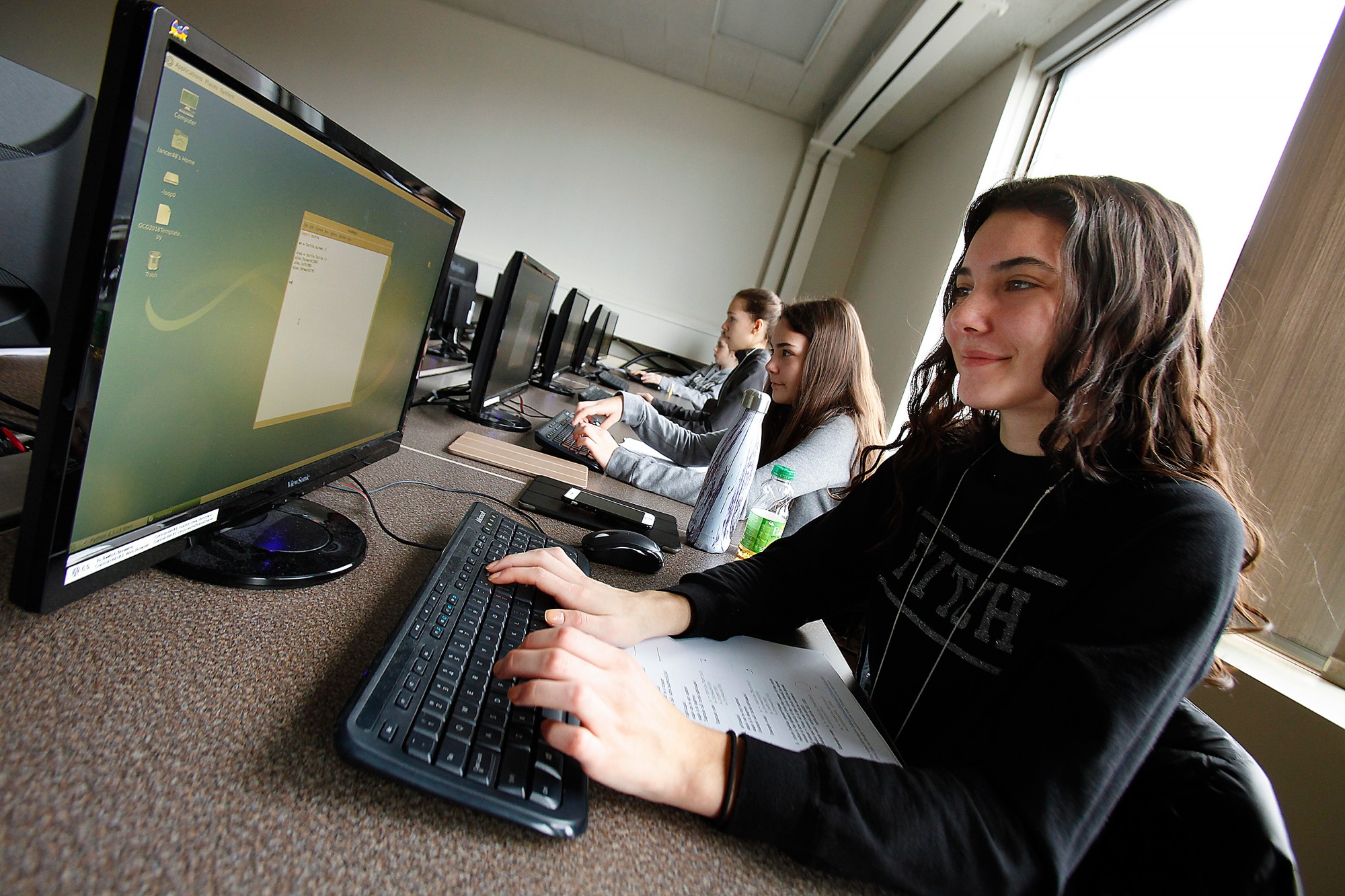
Spots went quickly for the University of Windsor’s first-ever Go CODE Girl workshop for girls in Grades 7-11.
A packed room of 40 participants learned the basics of Python, a computer programming language, Feb. 24 at a free workshop hosted by the university’s Faculty of Engineering and Faculty of Science.
“In Canada, we have a huge void and gap, not only in gender but also in skilled programmers,” says Dr. Ziad Kobti, professor and head of UWindsor’s School of Computer Science. “We have a very small number of females who pursue careers in computer science and yet the employment after a four-year degree is nearly 100 per cent. Thanks to local donors, we’ve established a female entrance scholarship to encourage women to apply to this exciting field.”
— Published on Jan 7th, 2021
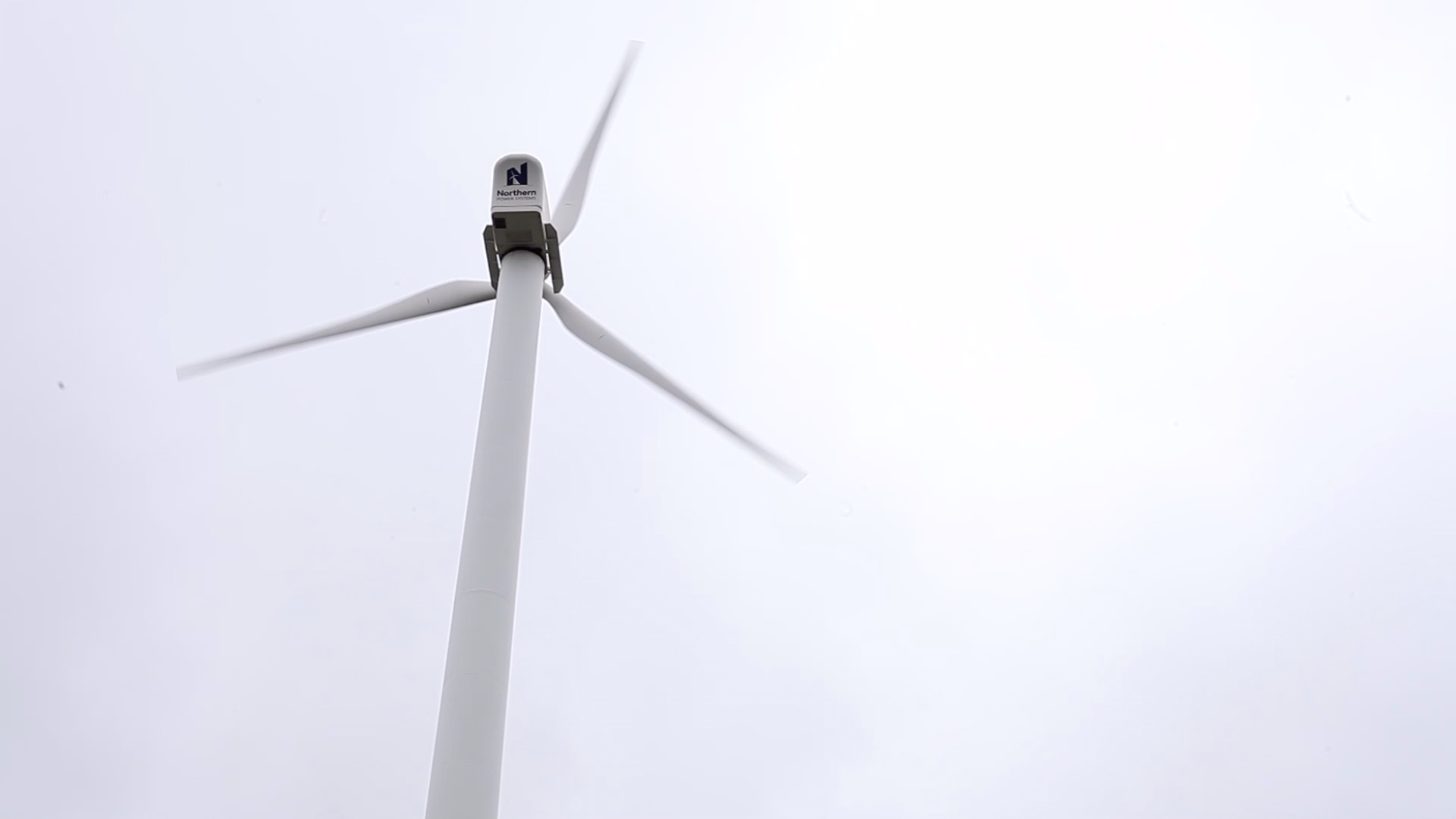
Renewable energy workshops designed and led by UWindsor engineering professors are gaining steam nationwide.
Professor Rupp Carriveau, who helps lead the international Offshore Energy and Storage Society and directs UWindsor’s Environmental Energy Instituteand Turbulence and Energy Lab, said UWindsor’s latest renewable energy workshop on January 29 will focus on offshore systems in Canada.
“We want to start a conversation to evaluate the potential for a thriving offshore renewable energy sector in Canada and Canada’s role in the global market,” he said. “We want to see what the opportunities and obstacles are for us as a country so we’re ready and not caught flat-footed.”
— Published on Mar 6th, 2018
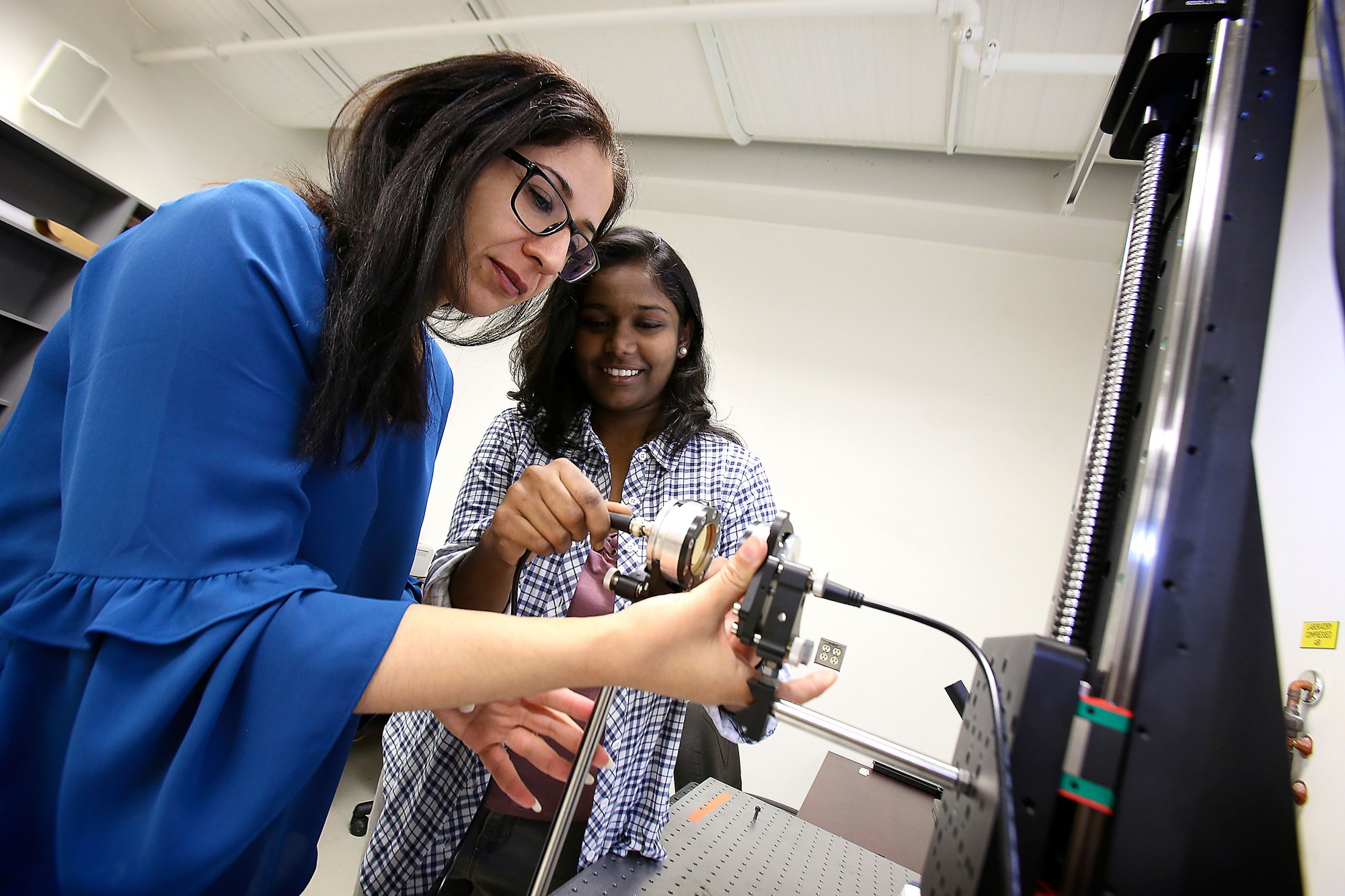
What if family doctors had access to low-cost, handheld scanners or biosensors that could detect cancer at an early stage? What if they could monitor a patient’s heart activity through a wearable device and detect early signs of cardiovascular disease? How about a sensor that could prevent intoxicated drivers from operating vehicles or a navigation system that could aid the visually impaired indoors?
Researchers at the University of Windsor hope to advance these technologies and more in Windsor’s first state-of-the-art microfabrication facility. The high-tech clean room will be specially designed to facilitate multidisciplinary micro- and nano-scale research by controlling air pollutant levels, pressurization, temperature and humidity. It’s slated to open in 2019 in the Ed Lumley Centre for Engineering Innovation.
“This fabrication facility will provide us with an ideal incubator for academia and industry to foster collaborative research and commercialization of advanced sensors, thus increasing our leadership in the emerging area of the micro nano sensor industry — an area which is rapidly growing,” says Dr. Jalal Ahamed, an assistant mechanical engineering professor who designs and fabricates micro- and nano-systems for a variety of applications, including healthcare, automotive, aerospace and manufacturing.
— Published on Jan 5th, 2021
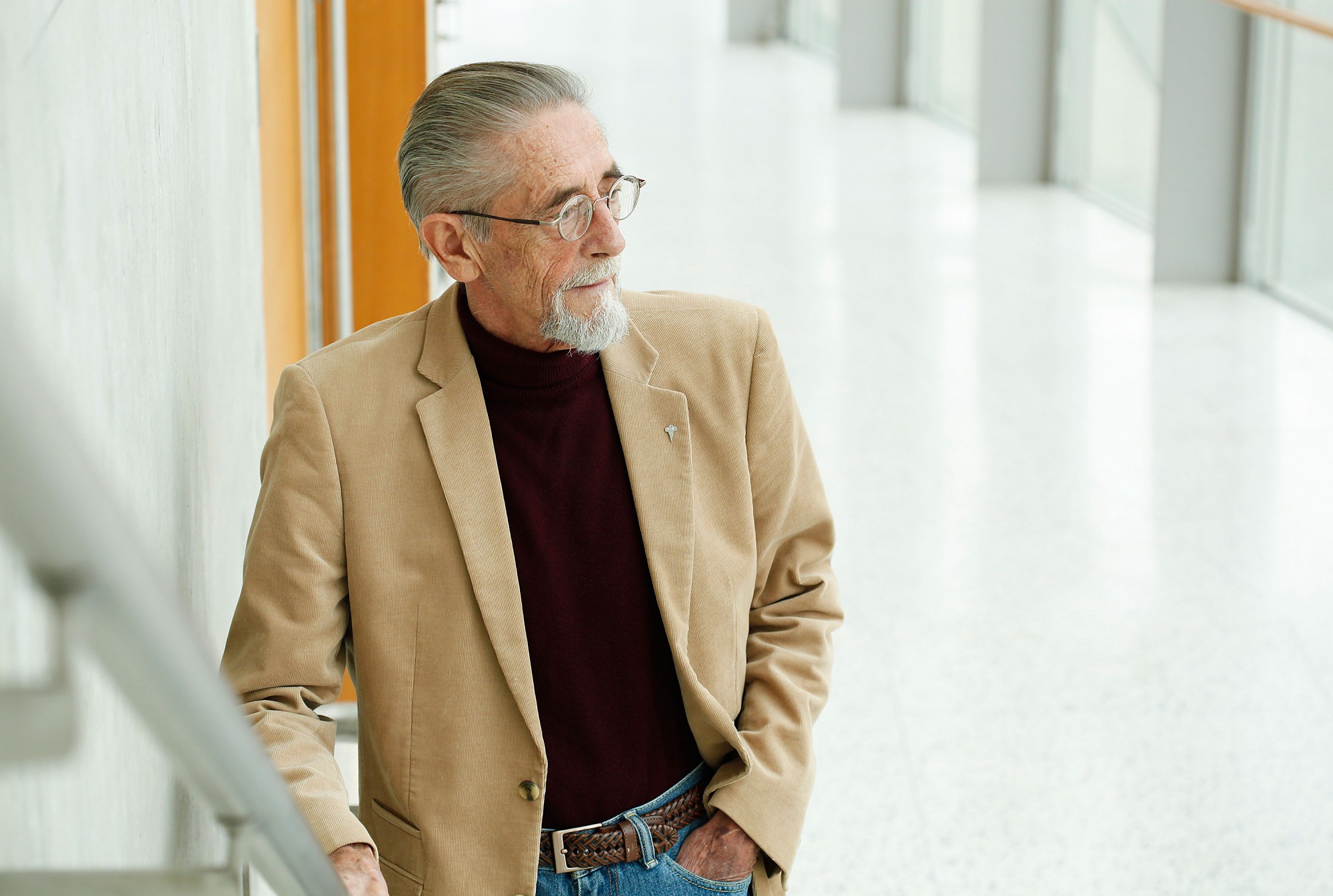
Norm Becker’s contribution to the engineering profession is incomparable. Dr. Nihar Biswas, UWindsor environmental engineering professor, says that not only did Becker mentor him, he’s inspired hundreds of UWindsor engineering students.
“Norm is a true role model who instills confidence and integrity in our students and, while succeeding in the engineering profession, has given back so much to the community,” Dr. Biswas says about the University of Windsor alumnus who’s spent his 51-year career working on complex engineering projects across North America, the Middle East, Africa, South America, the Caribbean and China.
Although Dr. Becker P.Eng. BASc ’67, PhD ’70 has worked all over the globe, he always maintained a close relationship with UWindsor. He even brought — and sometimes paid the cost out of his own pocket — engineering students with him on his pro bono projects across the country and in rural China.
For more than three years, Becker recruited engineers, students and trades people to design and plan water filtration systems for villages in the Chinese province of Shandong. While there, Becker and his team of volunteers took time to rebuild a fire-damaged medical clinic that sat unused for more than a year.
“Every school-aged child in the village inspected our work daily and charmed us with their smiles,” says Becker. “I think a few of them may aspire to become engineers themselves.”
— Published on Jan 5th, 2021










